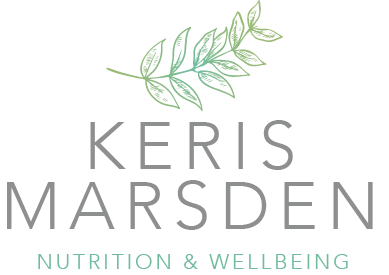Caffeine pros and cons
Wondering whether your daily caffeine hit is beneficial?
Did you know caffeine was developed during the industrial revolution to enable us to work harder and override fatigue?
This is definitely a con with caffiene that I commonly see with clients.
Us human beings are not always so great at monitoring our resources and caffeine can push us to ignore this further.
Caffeine metabolism
When it comes to caffeine and health, there’s no one-size-fits-all approach.
This is because your genes alter how you process caffeine; you can be a slow or fast metaboliser which could be one factor that influences whether caffeine is beneficial for you.
This means the speed at which you eliminate half your coffee could vary between 1.5 and 9.5 hours.
It’s the reason you probably know someone who has a double espresso after dinner and sleeps like a baby and another who claims just one coffee makes them a jittery, anxious mess.
It helps to understand the whole picture with caffeine, including its short-term and long-term effects on your symptoms and your health and assess the total amount you consume so that you can make adaptations if necessary.
Benefits of caffeine
Numerous studies have confirmed that drinking coffee can provide positive health benefits and may lower your risk of cognitive decline, obesity, diabetes and heart disease.
One of the reasons is because caffeinated drinks and foods like coffee, tea and dark chocolate are rich in antioxidant compounds known as polyphenols and caffeine can suppress appetite.
The chlorogenic acids – another natural antioxidant compound found in coffee beans – could also help lower your risk of metabolic syndrome.
Caffeine and anxiety
As caffeine is a stimulant it can exacerbate anxiety in a number of ways. Either by causing your mind to race or having a negative impact on your sleep.
Caffeine can also trigger symptoms (like palpitations, temperature change or an increased breathing rate) that may then cause you to feel anxious.
This is likely worse if you metabolise it slowly.
If you have anxiety, you may find it better to eliminate altogether or stick to a small serving daily such as 100mg to 200mg (1-2 beverages).
Avoiding caffeine on an empty stomach or during fasting and only having with food may also be beneficial.
Caffeine and cognitive function
Caffeine can improve alertness, attention span and overall cognitive performance.
Studies show when combined with around 100mg to 200mg of L-theanine (an amino acid found in tea and supplements), it can have beneficial effects on memory and focus as well as reduce distraction.
L-theanine is especially helpful as it provides a sedating and calming effect, reducing the stimulatory impact of caffeine without causing fatigue.
The two can work synergistically to optimise brain energy levels.
Caffeine and exercise
Caffeine has been shown to help with exercise performance.
You may benefit by simply having a coffee or tea before a workout to help your energy levels.
Energy drinks and sports supplements contain higher amounts of caffeine. These should be used with caution as they can increase the risk of negative side-effects like heart palpitations and sleep disruption.
Research suggests consuming around 3mg caffeine per kg of bodyweight can provide all the benefits and has the lowest risk of side-effects. Most of the research uses caffeine supplementation, however, it is likely the equivalent of two to three cups of coffee.
The effect seems to be greater in men than women in terms of improving sports performance.
Caffeine and bone density
Studies are currently investigating whether high consumption of coffee contributes to a reduction in bone mineral density.
It’s been observed that high caffeine intake (more than 450 mg per day or around three to four strong coffees) can promote bone loss in menopausal women if calcium intake is less than 800mg daily.
This is especially relevant during and post menopause, because your risk of osteopenia and osteoporosis increases significantly with the drop in hormones like oestrogen.
Sticking to moderate consumption and optimising your calcium intake with dairy products, tinned salmon and sardines, seeds and nuts and green leafy vegetables is important.
Green tea, on the other hand, can have a positive effect on bone health as it contains bioactive compounds that support bone building cells in the body.
Caffeine and bladder health
Caffeine and many drinks that contain it like coffee, tea, cola or soft drinks, can all be bladder irritants and cause an increase in urinary frequency (peeing).
This can cause irritation, affect your bladder control and make urinary infections more likely.
Try swapping to decaffeinated versions of your favourite drinks first as it is often the caffeine which stimulates urination but coffee, black tea and cola are also acidic which can cause symptoms to persist.
If this is the case it may be beneficial to swap to anti-inflammatory herbal teas; try chamomile or fresh root ginger tea.
Caffeine’s and menopause
Although the research is conflicting, there is some research suggesting caffeine may worsen symptoms like hot flushes and night sweats by altering blood vessel activity that influences temperature control.
Experiment with reducing your intake or eliminating caffeine completely by swapping to decaffeinated options to assess if it reduces the frequency or intensity of your symptoms.
Check your total caffeine intake
Research suggests most people can safely consume up to 400mg of caffeine daily. But how drinks are made also alters the caffeine content.
This list shows how your daily recommended intake (400mg) may look if you want to reduce it.
Average caffeine amounts
125ml filtered coffee, 85mg (range: 60mg to 135mg)
30ml espresso, 60mg (range: 35mg to 100mg)
125ml instant coffee, 65mg (range: 35 to 105mg)
125ml decaffeinated coffee, 3mg (range: 1mg to 5mg)
150ml tea (leaves or bag), 32mg (range: 20mg to 45mg)
330ml iced tea, 20mg (range: 10mg to 50mg)
330ml caffeinated soft drink, 39mg (range: 30mg to 48mg)
330ml diet caffeinated soft drink, 41mg (range: 28mg to 47mg)
330ml energy drink, 80mg (range: 70 to 120mg)
30g dark chocolate, 60mg (range: 20mg to 120mg)
30g milk chocolate, 6mg (range: 11mg to 15mg)
150ml hot chocolate, 4mg (range: 1mg to 5mg)
Making caffeine work for you
Here are some tips to ensure your caffeine consumption supports your health:
Stick to 1-3 caffeinated beverages and consume earlier in the day. Midday is a good cut-off point.
Assess the impact caffeine has on your mood; observe if it triggers irritability or anxiety as it may impact your blood sugar regulation.
Consuming caffeine before a workout may help you get going and some of it will be used up during exercise. This could help lessen the stimulatory impact it has on you for the rest of the day.
Check that caffeinated beverages don’t upset your digestive health and cause acid reflux, gastritis or loose bowel movements. If you have these symptoms, avoid caffeine on an empty stomach.
If you experience episodes of jitteriness or feel shaky after consuming caffeine, try consuming it with food, reducing the amount or eliminating it completely to see if this helps.
You may also feel the effects of caffeine later in the afternoon as your energy levels crash or you become wired at night and struggle to both fall and stay asleep. If this is the case, only consume early in the day and consider reducing your consumption.
Tea contains an amino acid known as L-theanine which has a calming effect on your mood; this may be a better option over coffee for a gentle energy lift without the side-effects. Green and matcha tea are high in L-theanine.

